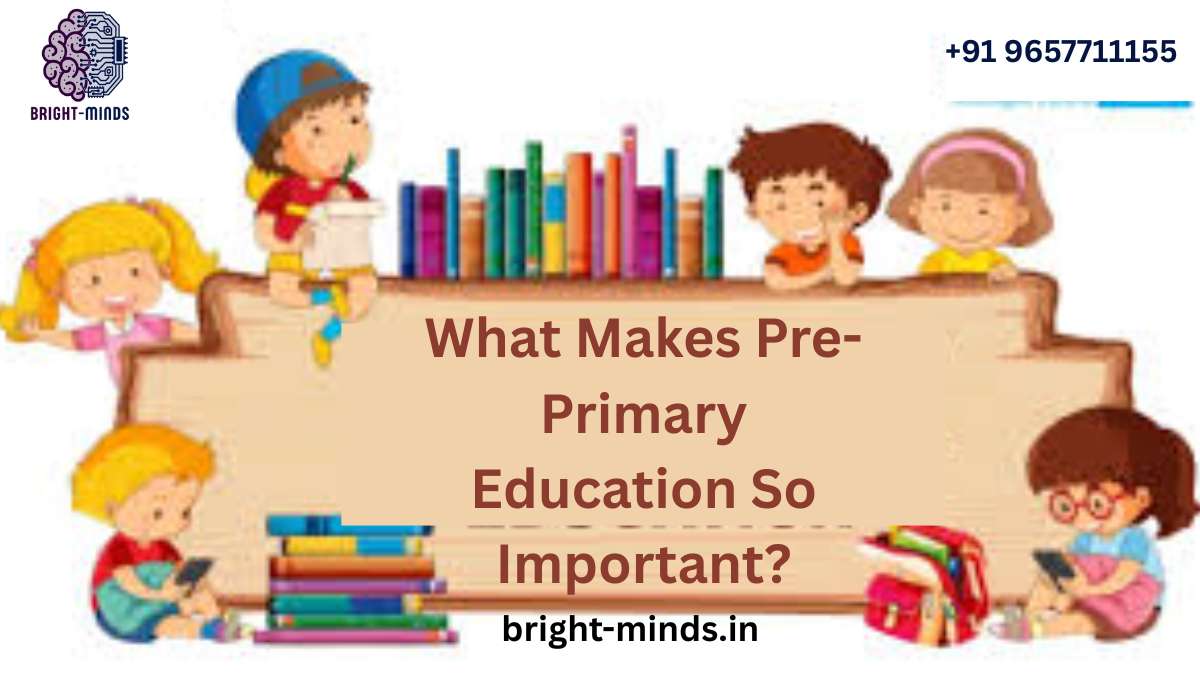- Imagine building a house without a solid foundation. No matter how well you construct the rest, it’s likely to crack or collapse over time. That’s exactly why pre-primary education—the early childhood learning that happens before formal schooling—plays a crucial role in a child’s development.
Whether you’re a parent, educator, or simply someone curious about early childhood education, understanding the importance of pre-primary education can unlock powerful insights into how children learn, grow, and succeed in life. And if you’re part of an educational institution or company, this knowledge empowers you to shape stronger, more impactful learning programs.
In this post, we’ll break down the basics, explore market trends, and provide real-world applications that highlight why early childhood education is more than just playtime—it’s a powerful tool for shaping the future.
What is Pre-Primary Education?
Pre-primary education typically refers to the learning experiences of children aged 3 to 6 before they enter formal primary school. Often known as nursery, preschool, or kindergarten, it lays the foundation for lifelong learning, behavior, and well-being.
At this stage, children learn primarily through play, storytelling, songs, games, and interaction. While it may look like fun and games, there’s serious developmental work happening behind the scenes especially in areas like:
- Cognitive development (language, memory, and problem-solving)
- Social and emotional skills (empathy, sharing, collaboration)
- Physical coordination (fine and gross motor skills)
- Early literacy and numeracy (recognizing letters, numbers, patterns)
Why is Pre-Primary Education So Important?
1. Builds Strong Cognitive and Social Foundations
Research shows that the human brain develops most rapidly in the first five years. Children who receive quality pre-primary education are more likely to develop essential life skills like curiosity, confidence, communication, and concentration.
A well-designed curriculum helps children:
- Develop basic literacy and numeracy
- Gain emotional intelligence
- Improve attention span and learning capacity
📌 Real-world Example: Children who attend a structured preschool program tend to perform better in primary school and beyond, according to UNESCO and UNICEF reports.
2. Reduces Future Learning Gaps
Early education bridges socio-economic gaps. Children from disadvantaged backgrounds often enter primary school behind their peers. High-quality pre-primary programs can level the playing field, offering every child an equal shot at success.
3. Prepares Children for Formal Schooling
Children who attend preschool adjust more easily to school routines, expectations, and social environments. This transition can be daunting without early preparation, leading to anxiety or underperformance.
👨🏫 Tip for Educators: Incorporate routine-based activities and structured play to simulate the school environment in fun, age-appropriate ways.
4. Long-Term Economic and Social Benefits
Investing in early education is not just beneficial for families it’s economically smart. According to Nobel laureate James Heckman, every dollar invested in early childhood education returns around $7–$13 in public benefits, including reduced crime, improved health, and increased productivity.
💼 For Companies in the Education Sector: Offering pre-primary education services or products is both a socially responsible and financially viable market segment.
Market Trends and Industry Insights
The global early childhood education market is booming. According to market analysts, the industry is expected to grow significantly due to:
- Rising awareness about early learning benefits
- Government initiatives and funding programs
- Increased participation of women in the workforce
- Technological integration in early learning (e.g., learning apps, digital classrooms)
Key Trends:
- Play-based and Montessori learning gaining popularity
- Demand for certified early childhood educators
- Expansion of e-learning solutions for preschoolers
- Greater emphasis on emotional and social learning
Practical Tips for Parents and Educators
Whether you’re teaching toddlers or parenting one, here are some simple yet effective ways to support early learning:
- Create a predictable routine – Consistency helps children feel secure.
- Read aloud daily – Builds language and listening skills.
- Encourage curiosity – Ask open-ended questions like “Why do you think that happened?”
- Play together – Games, puzzles, and pretend play build memory, attention, and imagination.
- Celebrate small wins – Positive reinforcement boosts confidence and motivation.
Real-World Application: A Day in a Preschool Classroom
Let’s take a peek into a modern pre-primary classroom:
- Morning Circle Time: Children learn the days of the week, weather, and calendar. This boosts memory and speaking skills.
- Themed Learning Stations: Activities include counting games, storytelling corners, and creative art areas.
- Outdoor Play: Builds motor skills, teamwork, and independence.
- Snack & Rest Time: Teaches hygiene, patience, and routine.
🎓 Many educators now integrate technology like tablets with storytelling apps to make learning interactive without replacing human connection.
Final Thoughts: Your First Step Toward Empowering Future Minds
Pre-primary education is not a luxury it’s a necessity. It’s the launchpad from which children explore the world, develop values, and unlock their full potential.
You might be interested in this:
Top Amusement and Theme Parks Around the World
Exploring General Knowledge: Gk Questions for Class 1 to 8 with AnswersEdit

